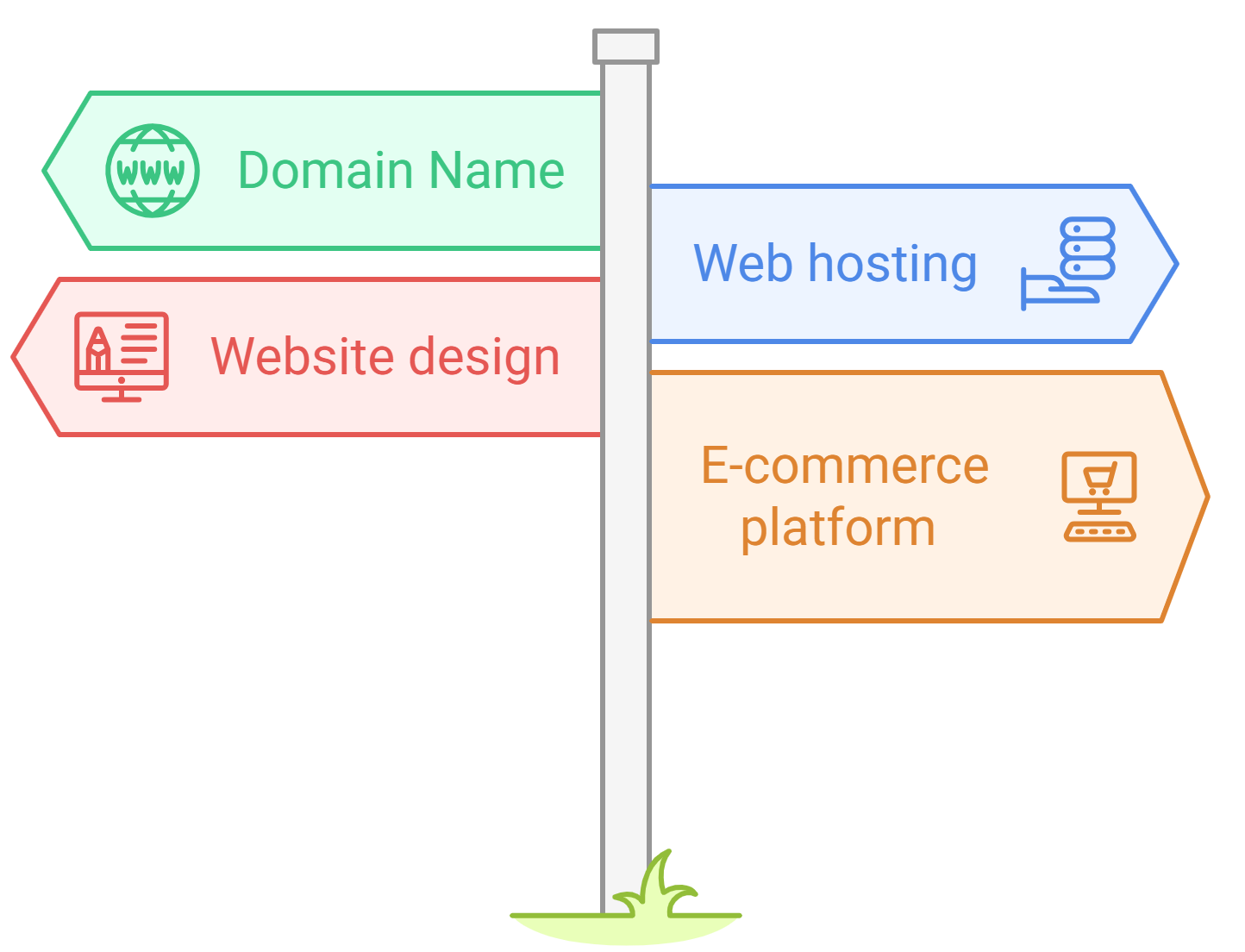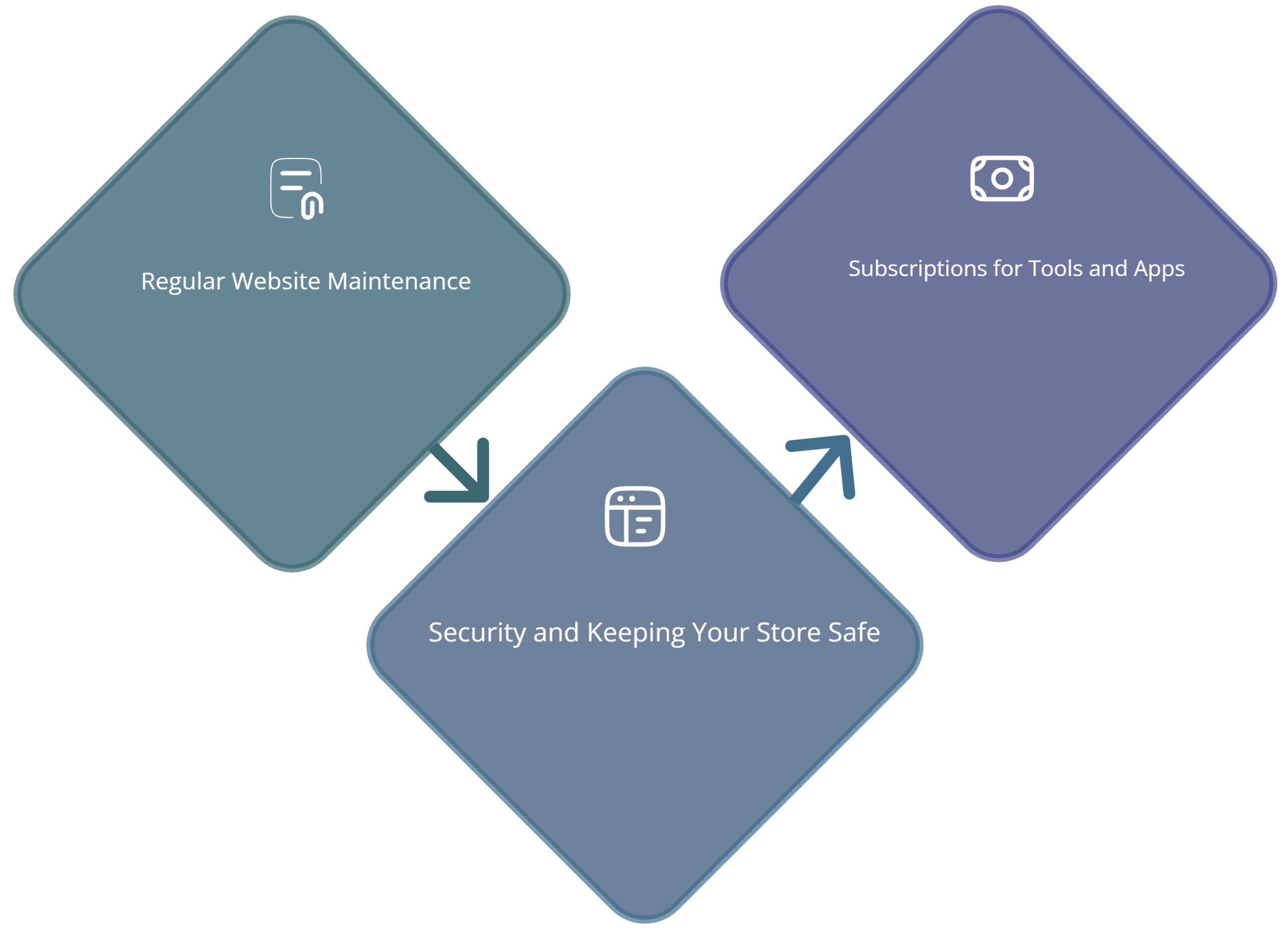“Starting an online store is cheap and easy,” you’ve probably heard this many times. But is it really?
In actuality, e-commerce is gaining popularity because it appears to be a quicker and more adaptable way to make money. Without a physical store, setting up an online store is now easy because of platforms like Shopify Store, WooCommerce, and Amazon. For this reason, freelancers, small companies, and even well-known brands are going online.
The problem is that, although the beginning could seem inexpensive, the real difficulty arises when unforeseen expenses begin to appear. You can end up spending a lot more than you expected if you don’t account for them. You can avoid unpleasant surprises by being aware of the true costs of operating an internet store, especially the invisible ones.
Is It Worth Having an Online Store?
Before we talk numbers, let’s ask: is it even worth it?
An internet store ends up being the primary source of revenue for many business owners. But “is it worth it?” isn’t the only question. “Can you manage the costs wisely so your profits stay healthy?” is the question. The short answer is yes. Online sales provide you with:
- Access to a bigger audience – Instead of being limited to your local area, you can sell to people across the country or even globally.
- Lower upfront investment compared to a physical store – No rent, electricity bills, or heavy furniture costs.
- Flexibility and scalability – You can start small and grow as your customer base increases.
- 24/7 availability – Unlike a shop with fixed hours, your online store never sleeps.
How Much Does an Online Store Cost?
Starting an internet store doesn’t seem like a big financial commitment at first. Therefore, the annual operating costs of a modest online store could range from $500 to $1,500 if we only include the essentials. Custom features in larger establishments might go much beyond that.
Here are the basic costs you’ll need:

- Domain name – Your website’s address (like mystore.com). This usually costs $10–$20 per year.
- Web hosting – The space where your store lives online. Prices vary:
- Shared hosting: $5–$15/month
- Managed hosting (for bigger stores): $30–$100/month
- Website design/theme – You can start with free themes, but professional ones usually cost $50–$200. A custom design can run into thousands.
- E-commerce platform –
- Shopify: around $29–$79/month
- WooCommerce: free plugin, but requires hosting and paid extensions
- BigCommerce, Wix, Squarespace: $20–$80/month depending on features
Hidden Costs You Might Not Know About
Here’s where most store owners get caught off guard. Let’s look at the hidden costs that aren’t always obvious at the beginning.
-
Fees for Payments and Transactions:
Every time a customer buys something, payment gateways (like PayPal, Stripe, or credit card companies) take a cut.
- Typical fees: 2%–3% per transaction + fixed charges.
- If you’re making $10,000 in monthly sales, expect to lose $200–$300 just on payment fees.
-
Advertising and Marketing Costs
“Build it and they will come” doesn’t work online. You’ll need marketing to attract customers.
- Google Ads, Facebook Ads, and Instagram promotions can cost anywhere from $100–$1,000+ per month, depending on how aggressively you market.
- SEO tools, email marketing platforms (like Mailchimp), and social media scheduling tools also come with monthly fees.
-
Shipping and Handling Expenses
Customers expect fast and often free shipping. But someone has to pay for it, usually you.
- Packaging materials, delivery partners, and returns handling can cost 5%–15% of each order’s value. If your margins are thin, this eats directly into your profit.
-
Customer Service and Store Updates
These costs may not be immediately apparent, but they are essential if you want to attract repeat buyers.
Think about:
- Hiring support staff or using live chat tools.
- Regularly updating your site with new features or fixing bugs.
- Refunds and replacements for unhappy customers.
Ongoing Costs to Keep Your Store Running
Even after setup, an online store is not a “set and forget” project. It needs ongoing investment to stay competitive and secure.

-
Regular Website Maintenance
Software updates, backups, bug fixes—these keep your store functional and safe. If you hire someone, maintenance can cost
$50–$200/month -
Subscriptions for Tools and Apps
These are useful, but each app may cost $10–$50/month
Add a few of them, and your bill quickly increases. Most e-commerce platforms offer extra apps for advanced features:- Abandoned cart recovery
- Product reviews
- Loyalty programs
-
Security and Keeping Your Store Safe
A data breach can ruin your reputation overnight, so cutting corners here is risky. Customers trust you with sensitive data. That means investing in:
- SSL certificates (some hosting plans include this, others charge $50–$100/year).
- Advanced security plugins.
- Regular scans against malware or hacking attempts.
Final Thoughts
Starting an online store feels exciting and full of potential, but the journey isn’t just about setting up a website and waiting for sales. Beyond the obvious expenses, there are hidden and ongoing costs, such as marketing campaigns, payment fees, shipping logistics, customer service, and regular updates that quietly shape your store’s future. Many new business owners underestimate these, only to feel frustrated later.
The reality is, an online store thrives when it’s treated like a serious investment. Budgeting for every layer of cost, both visible and hidden, helps you stay in control and avoid unpleasant surprises. Yes, it takes money to make money, but with careful planning, every cost becomes part of a bigger strategy to grow your brand, win customer trust, and create a business that lasts.
Final tip: Treat your online store like a long-term investment, not a side hobby. List out all possible expenses, even the hidden ones, and plan your budget accordingly. That way, instead of being surprised, you’ll be prepared and able to focus on what really matters: growing your business.
As the saying goes, “It takes money to make money.” But with smart planning, the money you spend on your online store will bring back much more in return.

With a Bachelor’s in Commerce and 15 years of experience in Ecommerce SEO and Shopify Development, I bring extensive expertise to the digital field. As Managing Partner at WillShall Consulting, I lead a team delivering exceptional Digital Marketing, Web Development, and Web Designing services. My passion for innovation and commitment to excellence help businesses thrive in the digital age.





 Call Us
Call Us Email Us
Email Us Video Call
Video Call

 Our Locations
Our Locations